More than a masterpiece of classic British horror, “Witchfinder General” is a cautionary tale with terrifying modern-day relevance.
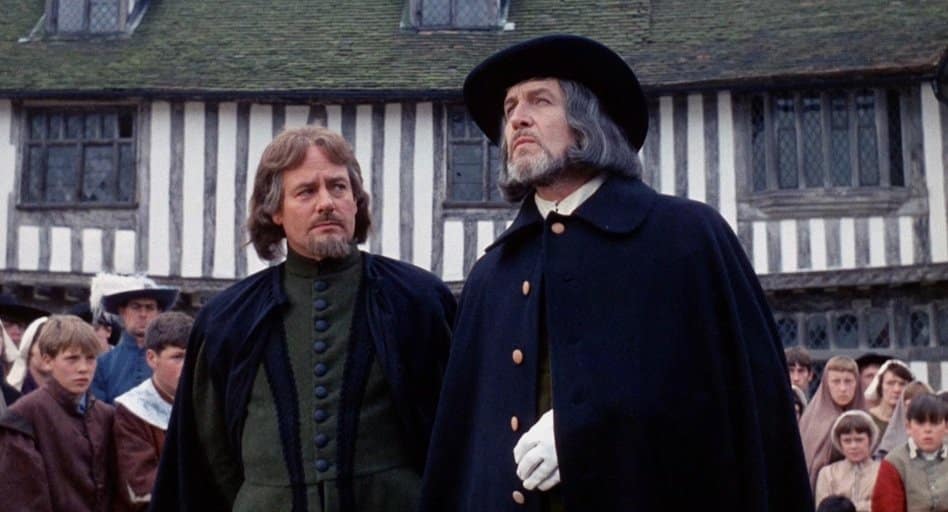
In 1968, director Michael Reeves made his magnum opus, Witchfinder General (released in the US as The Conquerer Worm). This was his third movie and, sadly, would prove to be his final one. The promising director struggled to get funding and green lights for his projects and suffered from depression.
Just a few months after Witchfinder’s release, he was found dead from an accidental barbiturate overdose.
The movie follows a fictionalized account of a true historical figure, the self-styled Witchfinder General, Mathew Hopkins, portrayed by the magnificent Vincent Price in one of his most menacing performances.
Hopkins was a lawyer who saw the profits to be made by playing into the superstitions and fears of the time and accusing people of witchcraft. He was paid by the church for each person he convicted and hanged. He acted as the accuser and the judge. Thus, the chances of surviving an accusation by him were very, very slim indeed.
It’s easy to see how corrupt this system is, yet we still see this today in countries with dangerous dictators.
Unfortunately and horrifically, the modern political landscape and global economy mean we must often turn a blind eye to the worst atrocities, often resulting in world powers rewarding countries with appalling human rights records. These countries are given economic boosts and allowed privileges like hosting major sporting events and receiving important state visits.
Witchfinder General begins its cautionary tale in 1645’s Suffolk, England.
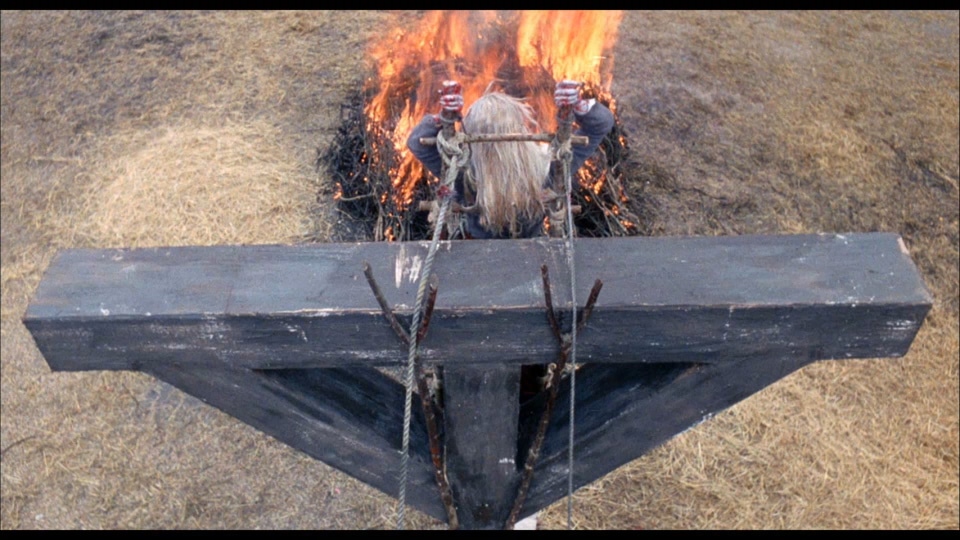
Suffolk has a strong link throughout English history to witchcraft, reaching further back than the 1600s. So, it’s no surprise that Hopkins sought to peddle his insidious trade there.
In the mid-1600s, England was in the midst of a civil war. King Charles the 1st and his royalist forces were battling Oliver Cromwell and his Roundheads for control of the country. It was a time of upheaval and unrest. During these tumultuous times, we often see superstitions and old fears rise and seek an outlet.
Back then, that outlet was the fear of Witchcraft.
We may not be burning witches these days, but we continue to target minority groups — and anyone deemed different — with hateful rhetoric, restrictive laws, prejudice, and persecution. From members of the LGBTQ+ community to BIPOC folks to religious minorities and women, you don’t have to look far to see far too many examples of the majority doing everything possible to oppress and suppress the minority.
Wherever people need a reason to affirm to themselves that they have some semblance of power or control, there will be a group that is targeted and systematically abused.
And there will always be people like Hopkins who seek to fan the flames and profit from the resultant chaos.
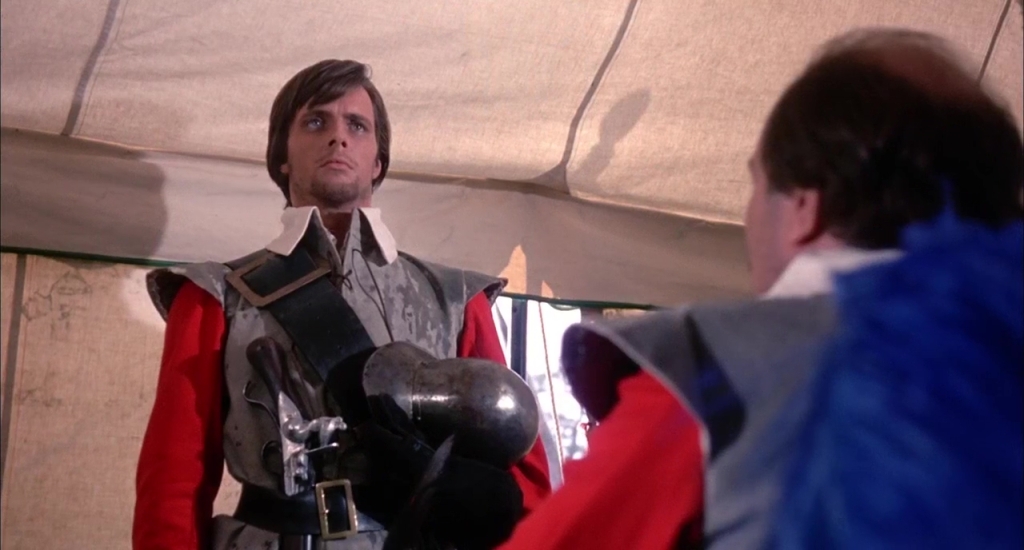
The film follows Roundhead trooper Richard Marshall (Ian Ogilvy, who British viewers of a certain age will forever see as The Saint) as he returns to his small village on leave to see his fiancé Sarah (Hilary Heath). She is the niece of a local Catholic Priest. And Marshall soon finds that the priest, John Lowes (Patrick Wymark), is worried about the feeling in the village towards him.
Recently, the local population has taken to chalking messages on his church walls and calling him an idolator and worse.
He begs Marshall to take Sarah away from the village as soon as possible, saying he will bless their marriage on that condition.
Religious persecution is nothing new, and obvious parallels can be drawn to the Jews during WW2, with the messages of hate being chalked on the walls and the systematic persecution.
We never seem to tire of causing horrific harm in the name of whatever God we choose to follow, even going so far as to declare war on people who follow the same figurehead but belong to a different sect or branch of that religion.
As The Subhumans said, “Religious Wars, no reason why, but what a glorious way to die”, right? Baffling.
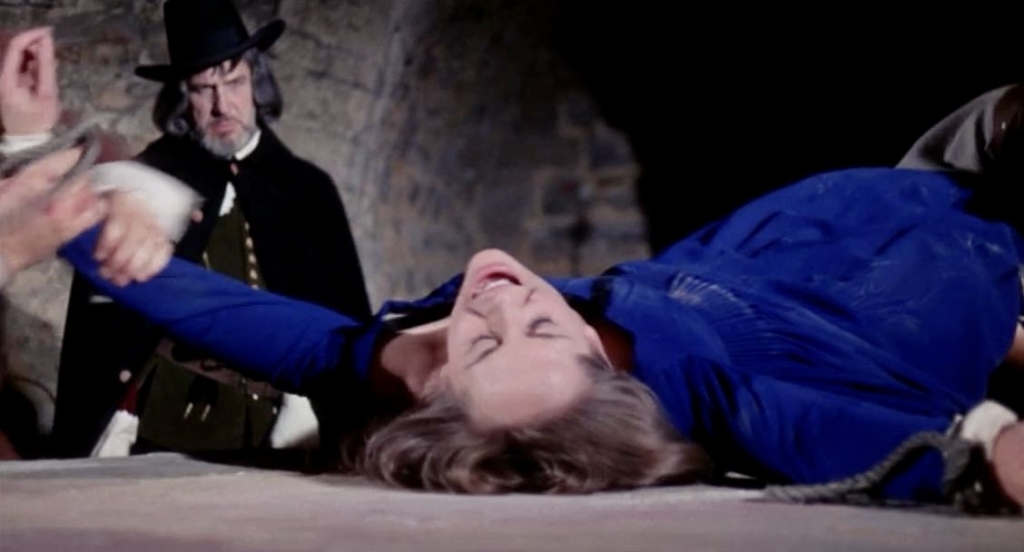
Marshall leaves the village to return to his unit with the promise that he will return soon to take Sarah away. But before he gets that chance, the villagers call in Hopkins to deal with the priest.
Hopkins proceeds to question Lowes in a fully, lawfully accepted manner. By which I mean he tortures him.
It’s easy to look at this and gasp at the barbarity, yet today we see sensory depravation, sleep depravation, waterboarding at Guantanamo, suspects being held for years on remand with no trial, judicious use of cell allocations to put problem prisoners in harm’s way, and of course the good old “he fell in his cell” bruisings. And it’s condoned and legally sanctioned. Or, at best, a blind eye is turned and a blatantly fake apology issued.
Confessions were gained in the 1600s from shattered hands… and are gained today from crushed throats.
Sarah is forced to trade sex with Hopkins to stop the torture of her uncle, but it ultimately doesn’t save him.
It would be asinine to suggest this doesn’t happen daily still today.
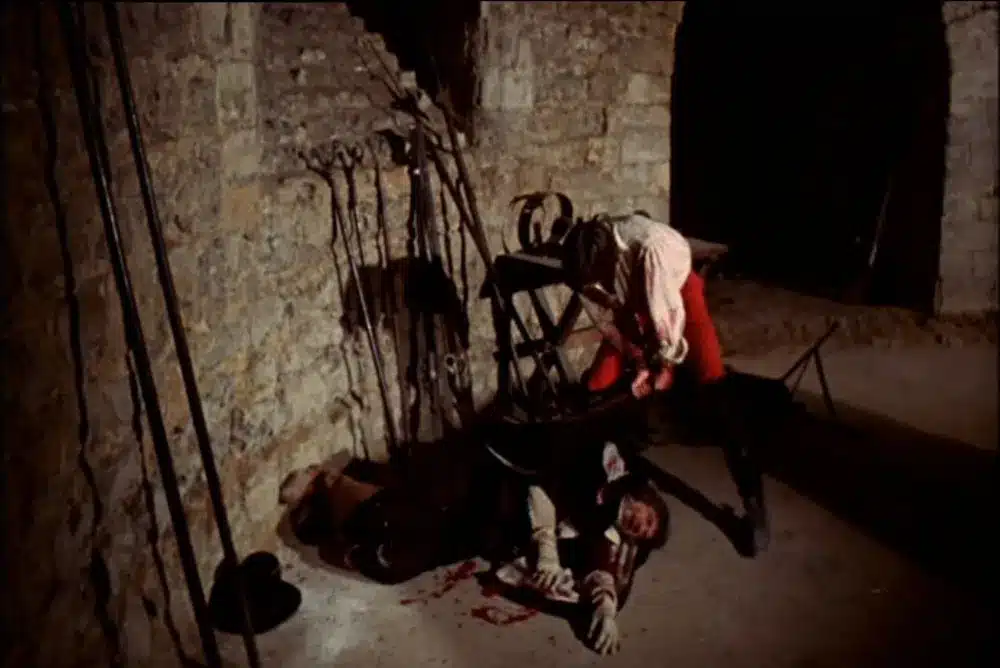
From people in abusive relationships to people, mainly women, being bought into the sex trade, this is a terrifying tale as old as human history. And we have yet to find the will to tackle the problem. But we should. We MUST.
Marshall returns to the village to find Sarah distraught and vows vengeance. He tracks Hopkins to another village where the Witchfinder is continuing to ply his trade, but Marshall and Sarah are accused by Hopkins of conspiring with the Devil and taken for torture and execution.
Marshall’s Roundhead unit commander follows them and storms into a room to find Marshall, who has been forced to witness Sarah being tortured in front of him, brutally beating Hopkins with an axe. The commander shoots Hopkins, and the film ends with Marshall, driven mad with grief and fury, screaming at him for taking the kill away from him.
Can we really wonder at the anger, grief, and quest for justice of so many families who have loved ones unjustly taken from them at the hands of our authority? Can we imagine the pain of a child being murdered on a night out just for being “a Goth”? Can we comprehend how it must be to be persecuted, ridiculed, shunned, and beaten simply for being gay, black, or, god forbid, a woman?
Sadly we can comprehend because we see it every day, in all walks of life. What we can not do, though, must not do, is condone it.
Movements spring up, like BLM or Me Too, and for a while, we are united in outrage and passion for change. But that initial wave of protest dies. Until the next time. And the Next time.
Witchfinder General is a brutal reminder that 1645 in Suffolk, England, is not so far removed from 2022 in every town, village, city, and country of the Earth; as such, it’s essential viewing.


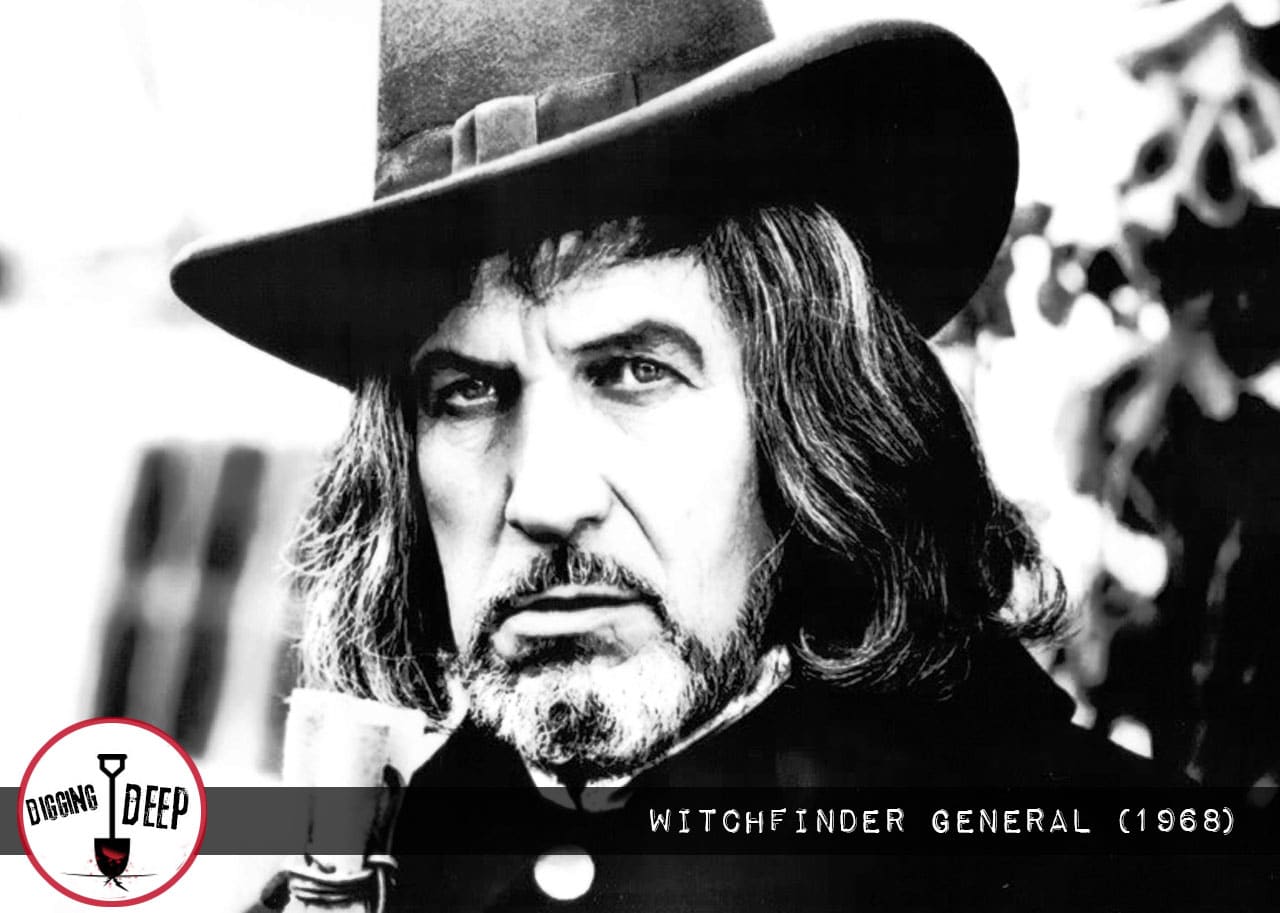



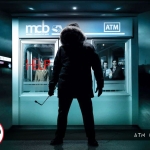







Follow Us!